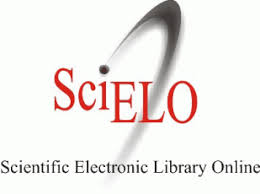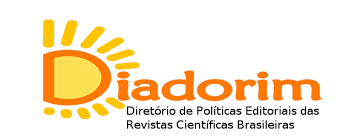About the Journal
FOCUS AND SCOPE
PRESENTATION OF THE JOURNAL
Turismo: Visão e Ação (TVA) is an interdisciplinary scientific journal affiliated with the Graduate Program in Tourism and Hospitality – Master's and Ph.D., at the Universidade do Vale do Itajaí - UNIVALI. It specializes in the field of Tourism and operates on a continuous flow publication system, with national circulation and international reach. Currently, it is classified as 'A3' in the fields of Administration, Accounting, and Tourism, according to the Qualis/CAPES criteria (2017-2020).
The target audience primarily consists of researchers, professors, and graduate and undergraduate students in Tourism and related fields. It also includes consultants, entrepreneurs, and professionals from public and private companies working in these areas.
Access to published content is open, and no fees are charged for submission, evaluation, or publication. In this regard, we encourage the submission of manuscripts in the format of Scientific Articles, Theoretical, or Theoretical-Empirical, whether national or international. These should address relevant topics with provocative and innovative perspectives for the scientific development of Tourism and related areas, such as hospitality, gastronomy, leisure, events, and others. The content should demonstrate notable analytical depth and theoretical-methodological consistency, reflecting the state of the art in knowledge production in the field.
Articles can be submitted in Portuguese, English, or Spanish and will be published in their original language. Submissions must be made electronically through the Journal's platform (link submission). To avoid endogeneity and promote a diversity of topics and authorship, TVA adopts a policy of publishing one article per author/co-author per year.
It is a prerequisite for Tourism: Vision and Action that the submitted article be unpublished, meaning it has not been published (or is under evaluation) in any other national or international journal, conference proceedings, book chapters of any nature, or made available on various social media platforms. Articles published by TVA will be assigned a DOI identifier.
We emphasize that TVA does not charge any fees: access, submission, evaluation, editing, publication, and related expenses.
Please refer to the Author Guidelines and use our Submission Template, available for download at the following link (link Template).
MISSION
To interconnect interested parties, through the transversality of scientific research in the area of knowledge of Tourism.
With this objective, we work to encourage discussions and the dissemination of knowledge and techniques applied to tourism and related areas, helping students, researchers, managers, governors and other interested people to unveil the complexity and typicality of tourism.
CONFLICTS OF INTEREST
Authors: Authors must explicitly and individually declare to the editor (available on the submission page) any potential financial, direct and/or indirect, non-financial, etc., conflict of interest, as well as any conflict of interest with ad reviewers. hoc, when applicable, at the time of article submission and/or during the evaluation process.
Ad hoc reviewers: When accepting the manuscript for evaluation, the reviewer must express his/her opinion about the conflict of interest directly on the journal page. In case of identification of a conflict of interest on the part of the reviewers, the General Editor and/or Associate Editors will forward the manuscript to another ad hoc reviewer.
PLAGIARISM
Articles submitted to the journal will be checked, using a plagiarism detection tool, as recommended by the university, before the peer review process.
PLATFORMS
TVA requests that authors, after publication, post their articles on the following platforms:
Academia.edu – https://www.academia.edu/
Mendeley – https://www.mendeley.com/
ResearchGate – https://researchgate.net/
Google Acadêmico – https://scholar.google.com.br/schhp?hl=pt-br
Compliance with Open Science
TVA is committed to the principles of Open Science, which promote collaborative, shared, and public scientific practice. Following these guidelines, TVA adopts various practices, including open access, editor guidelines, and uses social networks to disseminate published works. Additionally, it requires clear identification of each author's role in articles with multiple authors, encourages the sharing of datasets, instruments, statistical analysis scripts, and additional materials in open repositories when they cannot be included directly in the article.
As a result, articles describing research must inform and reference the availability of underlying resources for the study and the obtained results. TVA also encourages, when applicable, the publication of preprints on public platforms, allowing for open discussions before the final publication. In this case, authors must inform the editor, at the time of submission, of the platform used and the status. The article will receive the same treatment in the double-blind peer-review process.
Furthermore, the contribution of section editors is acknowledged in the published articles, and reviewers receive documentation about their work, being able to record their activities on certified platforms, such as the Lattes platform. These practices reflect TVA's commitment to the principles of Open Science.
POLICIES OF OBEDIENCE AND PROMOTION OF ETHICS IN SCIENTIFIC COMMUNICATIO
TVA adopts the policies of obedience and promotion of ethics in scientific communication established by the San Francisco Declaration on Research Assessment (DORA) and by the Guide to good practices for the strengthening of ethics in the scientific publication of SciElo. We consider good practices:
For publishers
Responsible authorship practices and clear description of the contribution of each author in the construction of the article.
Adoption of an open access policy.
For reviewers ad hoc
Prioritization of impartiality, integrity and confidentiality in its evaluation, carrying out constructive criticism and complying with the deadline agreed with the journal.
For authors
Respect for the originality of the work, not submitting research that is already in the evaluation process in another journal and/or other social media platforms.
Citation of all primary works used in the construction of the research in lieu of revisions, in order to give credit where credit is due.
Preprints
TVA encourages, when appropriate, the publication of preprint articles on public platforms, such as Preprints, SciELO Preprints, and EmeRI, so that, if applicable, they can be openly discussed before formal publication. In this case, authors must inform the editor, at the time of submission, about the platform used and the status of the article. The article will receive the same treatment in the peer-review process.
Access the code of ethics (link)of Tourismo: Visão e Ação which must be known by the authors, who, when submitting their articles, agree to the established terms.
PEER REVIEW PROCESS
TVA has a permanent editorial board and ad hoc evaluators. Both the members of the editorial board and the ad hoc evaluators are researchers recognized by the academic community. The submission evaluation process consists of the steps:
1) Desk Review evaluation carried out by the General Editor and Editorial Assistants
This process aims to identify whether the article meets the journal's focus and scope requirements and whether the results reach the relevant level of significance for research in tourism and hospitality. Then, the article will be checked in a plagiarism detector, to confirm its originality, and, to be accepted, the article cannot have more than 3% of coincidences.
This process takes a maximum of 20 days, and the author(s) will be informed, by email, if the article:
a) will go to the next stage of evaluation; b) adjustments must be made and a new submission must be made;
c) there is no publication interest for the journal.
2) Double-blind Review evaluation stage
At this stage, the article will be forwarded to at least two evaluators from the TVA staff, without identification of authorship (Double-blind review process), who will evaluate the material according to the specific form available in the system. The return of the evaluation is via the system, with an average period of 45 days being requested.
In case of contradictory opinions, the work will be forwarded to a third evaluator.
In the case of analysis by the third evaluator, the Editors will be responsible for the final decision on the publication.
Authors will be able to follow the evaluation process in the submission area, on the journal's page.
3) Editorial decision
Upon receipt of the evaluations by the editors, a decision will be made: a) Accept. b) Mandatory corrections; c) Submit a new round; or d) Reject.
(a) If the decision is Accept, the authors will be communicated and guidelines for adjustments, improvements in content and/or form, grammatical and spelling revisions, if necessary, will be forwarded.
(b) If it is Mandatory Corrections and a new round, an e-mail will be sent to the authors with the guidelines of the evaluators for the necessary corrections and adjustments, which must be met within the established deadline.
Corrections must be highlighted in the text and posted in the system as a Supplementary Document, in the first submission.
In the case of a new round, the article will be sent for a new evaluation by two evaluators, which may be the same ones that carried out the first evaluation.
If, after the checks, the recommendations are confirmed by the evaluators, the article will be accepted, proceeding according to item (a).
(c) If it is Reject, the authors will be informed, via e-mail, with a summary of the evaluations, highlighting the critical points that led to the decision. In this case, if it is in the interest of both parties, the authors may, after the recommended adaptations, make a new submission.
4) Approval for publication
Only after evaluating the content improvements, requested by TVA, will the article be approved for publication.
In this case, the Author File will be forwarded, to be filled in with the personal and professional data of the author(s), namely: full name, degree, institution, faculty and department, city, state, country, e-mail , ORCID and mini-resume. As well as the indication of individual participation in the construction of the article.
A final version translated into English or Spanish will be requested (final version with official letter proving the translator's credentials), at the expense of the author(s). This version is optional, if the author wishes to publish it in another language.
FREQUENCY
Starting in January 2024, TVA will adopt a continuous publication system, with one annual volume, maintaining a sequential numbering of the volumes already published. Articles will be continuously published throughout the current year, with a minimum of 27 articles annually
FREE ACCESS POLICY
TVA offers free access to its content, following the principle that making scientific knowledge freely available to the public provides greater global democratization of knowledge.
BACK-UP AND PRESERVATION
A copy of TVA is systematically filed by the PKP Preservation Network.











